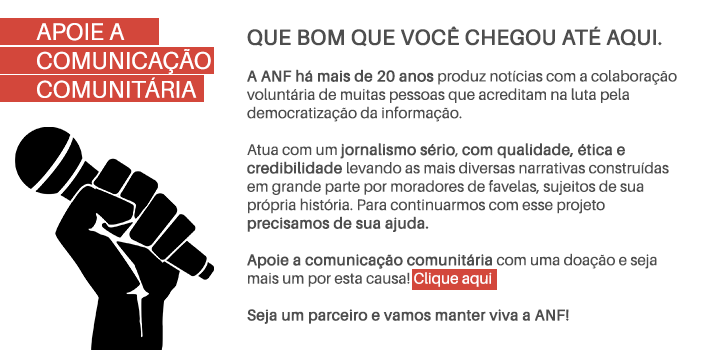The favela Jacarezinho is not pacified by the police yet, and the UPP and BOPE are yet to arrive in the favela. But according to the residents in Jacarezinho, the police will not save the favela that is rapidly falling apart due to lack of infrastructure and opportunities. What they need is social inclusion – now
(Video of interview with Serginho and Rumba Gabriel: Favela Jacarezinho – \”we NEED social development\)

The streets of Jacarezinho are filled with dirt, mud, polluted drain water and drug dealing. Skinny, red-eyed children on crack are restlessly walking around, seeking a new fix – like living skeletons bound to a drug that will rapidly kill them. Deadly resignation and lack of education. Small houses without electricity are falling apart. Jacarezinho is a collapsing community, apparently abandoned by the public authorities of the state of Rio de Janeiro.
The favela Jacarezinho in Rio de Janeiro is the second largest favela (shantytown) in Latin America with around 90.000-100.000 residents. The exact number of residents is unknown, no one keeps track, but it is rapidly increasing. Jacarezinho is placed in the North Zone of Rio – far away from the touristed areas in the South Zone. Therefore the favela has not been pacified by the two policeforces BOPE and UPP, but they are about to arrive in the nearest future. But the residents in Jacarezinho doubt the social effects of the pacifying police.
UPP is not the solution
UPP (Pacifying Police Units) is a law enforcement program in the State of Rio de Janeiro implemented by the guvornor Sergio Cabral. In short UPP aims at reclaiming the favelas, that have been controlled by gangs of drug drugdealers or militias and eradicate the drug dealing. But many of the residents have little faith in the effect of the arrival of the police. ”Everyone knows that drug dealing continues, even after the police enters the favelas”, says a man in the street, Felipe and his friend Eduardo continues: “Here the level of our living-conditions is very much below the one in the South Zone of Rio”, he says and explains:
“If only UPP and BOPE could bring us better living-conditions – education, electricity, healthimprovement – they would be very welcome”, he says and concludes: “But they bring guns and force. And anyone that enters my house with force, even to look for drugs, is not welcome.”
Many of the residents are clearly not too excited about receiving the police in the nearest future. But the president of Jacarezinho, Serhinho, thinks that is logical: ”“UPP is not the solution to our problems. What we need in Jacarezinho

is NOT pacification”, Serginho says seriously: Look around – the police cannot solve the kind of problems we have here”, he says and refers to extremely visible lack of infrastructure, education and healthimprovement in the favela: ”What we need is social development.”
Journalist and social activist Rumba Gabriel, living in Jacarezinho agrees with him. According to him it is crucial, that the favela gets rid off the its stigma: ”Jacarezinho is almost the biggest favela in Latin America. It could be a flourishing cultural centre in Rio. We have many good intentions here”, he assures, but emphasises: “But Jacarezinho needs good influences. Social projects and better education.
We want to see our children and young people as doctors, professors, teachers, engineers and lawyers”, he says and enforces:”And not as victims of crack”.
Social inclusion wanted
In the pacified favelas in other parts of town, violent crime has fallen dramatically, while property value has increased. And generally governor Sergio Cobral’s program has been regarded as a major success in the fight against organized crime in Rio. Earlier this month, Sergio Cabral stated that “nothing is more important in Rio de Janeiro than the public security” in the paper “O día”.
But according to both Serginho and Rumba Gabriel the path to public security in Jacarezinho goes through social inclusion of the residents. Serginho is afraid that the favela is not going to develop, with the police as the only representatives of the state in the favela: “We want to see long-time- differences here and sustainable social projects – established by other representatives of the state than the police”, he says and states: “Social inclusion first – and then police can come afterwards!”, “
Serginho elaborates: ”The police arrives with force. If you arrive with force, your intention is not to develop things – it is to control things”, he explains: “That is against the principles of democracy”. It is very important to Serginho that the rights of the residents are being respected – especially by the police, whom many residents have experienced as corrupted and violent in the past. Therefore Serginho is very much against the police entering the residents’ houses with force: “We have the same rights as everybody else outside the favela. Entering a house without permission is illegal!”

Serginho is hesitant to talk about whether Jacarezinho hosts many conflicts between the police and the drug dealers . Talking openly about the police and the drug dealers is still a big taboo and can get the residents in trouble with both the police and the drug dealers.
But Serginho can say as much as the conflicts in the favela are mostly created by people from outside the favela: “This community is already peaceful. It does not need pacification as such. But people are desperately awaiting a change for the better.”












